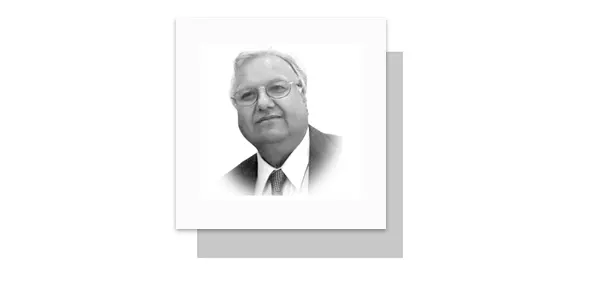IT must have been around eight or a quarter past eight in the morning when a polite knock at the door disturbed my peaceful slumber.
My commitments didn’t start until two o’clock, so I had planned to indulge in a leisurely morning.
As I lay under the blanket, savouring the freedom of the day, the knock shattered my sweet dream.
In that moment, a verse by Muhammad Rafi Sauda suddenly came to mind, feeling oddly fitting.
In my first year of intermediate studies, Professor Syed Shabbir Hussain highlighted the contrast between Mir Taqi Mir and Sauda.
He explained that Sauda’s refined yet forceful temperament reflected his aristocratic background while Mir embodied simplicity and asceticism.
As a young revolutionary, I had embraced Mir and dismissed Sauda as bourgeois.
But that carefree morning’s disturbance brought Sauda to mind in a new light.
In that spirit, I treated myself to a breakfast befitting Sauda: omelet, paratha and sweet tea.
Feeling content afterward, I reminisced about the events of the past night.
I had come to Lahore for Punjab University’s book fair, a celebrated event.
According to Allama Abdul Sattar Asim, no other book fair creates such an atmosphere.
Other venues, like the Expo Centre, often become more about profit than passion.
Everyone laments that book culture is dying, but no one takes action to revive it.
At least the government could support vendors by waiving stall fee.
But at Punjab University, the environment was different, making both readers and publishers flock happily, their hearts uplifted by the fragrance of books.
A couple of years ago, under Dr.Khalid Mahmood, this fair became a true celebration for book lovers.
Now, with Dr.Syed Muhammad Ali at the helm, expectations remain high, as his experience from Quaid-e-Azam University and his love for knowledge are sure to benefit both the university and book enthusiasts.
My visit coincided with the book fair and Allama Sahib had organized a program titled “Meetings and Conversations with Authors.”
I attended later, but before that, I reconnected with old friends.
It was a reunion that Ustad Zauq would rank higher than the meeting of Khidr and Messiah.
We must have met after forty long years.
As soon as brother, Dr.Abu al-Wafa, heard about my arrival, he took charge of my schedule and whisked me off to the Executive Club.
Abu al-Wafa Bhai is a scholar of Arabic, and his father, Maulana Abdullah Alavi, was a pioneering elder who founded the Jamia Arabia Qasim al-Uloom in Sargodha—a madrasa whose blessings the city still enjoys today.
At the Executive Club, we found Jamshed Bhai, a key figure in Al-Khidmat.
Although we meet occasionally, thanks largely to his efforts, my encounter with Asad Chughtai Bhai happened after four decades.
Our friendships date back to our college days.
Life scattered us across different paths, but our hearts remained close.
That evening, as we settled into the dewy lawn, our conversation picked up right where we had left off — in the semi-urban, semi-rural ambiance of Sargodha.
Asad Chughtai, with his soft-spoken and serious demeanour, now carried an air of wisdom, resembling his father, Dr.Muhammad Aslam Chughtai, a close associate of Maulana Maududi.
Asad Bhai reminisced about his childhood, recalling a day when he returned from school to find a distinguished guest enjoying corn greens with bread at their home.
This guest was none other than Chaudhry Muhammad Ali, the Prime Minister who gave Pakistan its first Constitution.
In those days, politicians didn’t stay in hotels during their travels; they stayed at friends’ homes, regardless of party affiliation.
Memories sparked more memories.
Jamshed Bhai, the living history of Sargodha, recalled the days of the Khatm-e-Nubuwwat Movement.
He narrated how Saleem Ahmed Farooqi, then President of Anbala Muslim College’s Student Union, was arrested during the movement and imprisoned at the City Police Station.
When Jamshed Bhai went to visit him, he too was arrested and transferred to the local jail the next morning.
Back then, remand was merely a formality — the police would present a paper to the magistrate, who’d sign it without question.
Political activism in those days was a true test of resilience.
Jamshed Bhai fondly recounted the Friday prayers held in the prison, where a local cleric would deliver the sermon.
One day, he and Farooqi scribbled a note requesting that they deliver the sermon instead.
The cleric agreed, and that day, the prisoners heard a sermon on Khatm-e-Nubuwwat delivered by those incarcerated for the same cause.
This act earned them such admiration that fellow prisoners began kissing their hands and feet.
Alarmed, the jail authorities transferred them to the prison hospital.
What glorious times those were, and what cherished memories!
Just as these tales of bravery erased the guilt of my indulgent breakfast, there was another knock at the door.
This time, it was Agha Irfan Jafar Khan, a book-loving dervish from Lahore.
His company made our trip to the book fair even more delightful.
—This writer is former advisor to the President of Pakistan, author & mass media theorist.(farooq.adilbhuta@gmail,com)










